By Laura Linn. Sept. 5, 2019. If I were to take a panoramic photo from my childhood, it would be a sea of green trees.
My family and I lived along the McKenzie River in Oregon, and we had to traverse a long driveway through the woods to see our nearest neighbor. It was my brother, sister, and me with acres of public lands as our playground. We spent our time exploring, my twin brother fearlessly, me not so much. (I relied on strips of fabric tied to trees to find my way home.) That said, I preferred climbing trees, making mud pies and splashing through the creek to a day inside helping my mom work.
Along with the fun were the dreaded days alone at the bus stop or checking up on the horses after dark. I was sure something would come out of the woods and get me. Despite all the time I spent outside, the forest still held mystery. Maybe it was my imagination winning out over my lack of knowledge, but it could be a big, dark place at times.
In hindsight, I hadn’t chosen all this time in nature, and I could not appreciate how that time spent playing and exploring in the woods might benefit me. Now, as a graduate student navigating the research around the benefits of a connection to nature, I can see how those early years shaped my path.
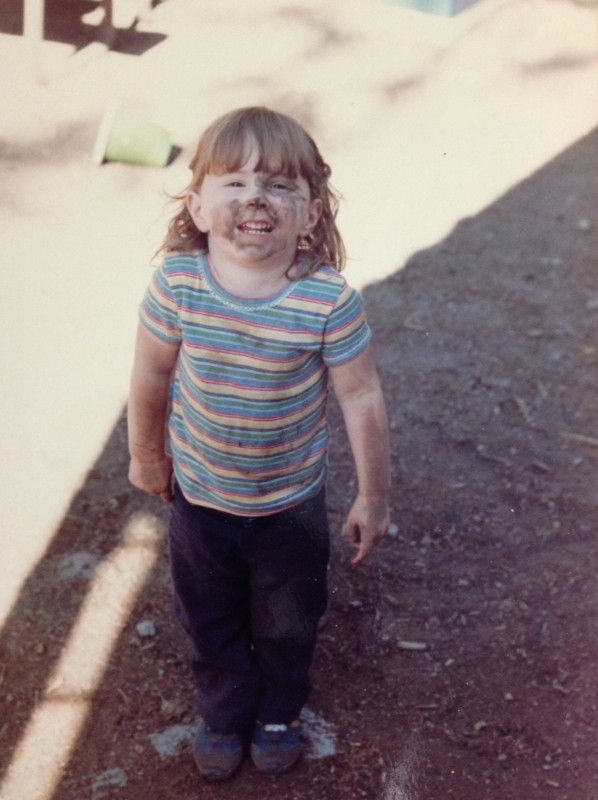
The author wearing her childhood uniform: dirt!
During my teen years, outdoor fun took a back seat as a disconnect developed. We moved into a small town for middle school, but after a decade in the woods with only your siblings, it felt large. No longer rural, an hour-long bus ride became a 10-minute walk to school, and I’d traded the mystery of the forest for boys with paint guns. I do not recall having trouble adjusting to life exploring neighborhoods instead of forests.
By the time I reached high school, my time in nature consisted of summers working on a vegetable farm and partying in the woods. My connection to nature changed in ways I was blind to, with more important things to worry about like new school clothes, volleyball and friends. In hindsight, I spent the second decade of my life drifting farther away from the outdoors.
I only recently discovered the term “extinction of experience”, which describes the idea that as we move farther from nature, we forget the value it holds. As distractions grow, our time in nature shrinks, leading to this unintended lack of concern. And for the first half of my life, nature was something I grew up with, not something I sought out for personal benefit.
The slow drift back started with school. Working towards an associates degree, I stumbled across Dr. Mitchell’s biology class and found myself fascinated by the videos of African wildlife and ecology he shared. The course played a significant role in my renewed interest in nature, but there are patterns in the research that might also explain my reconnection. Surveys of environmental educators and conservationists show a common theme: the amount of time spent outdoors as a youth. This is no surprise since research shows that time in nature before age 11 leads to more environmentally friendly behavior in the future. Even with this renewed motivation, I still couldn’t articulate my connection to nature. But I’m grateful to Dr. Mitchell for pointing me in the right direction.
Dreams of Africa stuck with me as I worked on a Zoology degree. Finally, I felt the fascination the African wildlife videos inspired, except this time I was in Namibia throwing meat off a truck to 16 hungry cheetahs. My passion for cheetahs took me to a Smithsonian research center in Virginia where I found my happy place awaiting dogwoods and redbuds in early spring, monitoring Eastern bluebirds in the summer and watching the leaves change in fall. There was still a lack of awareness around the connection I had seemingly found again, and it was not until I moved back to the Pacific Northwest that a new perspective helped my understanding take shape.
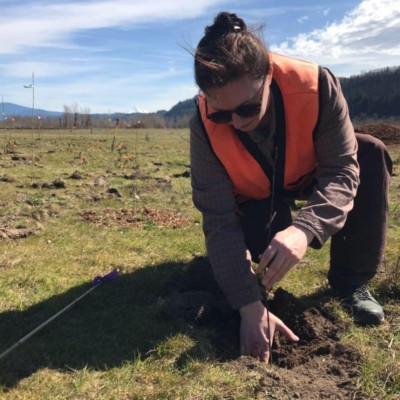
The author planting saplings with the Mt. Adams Institute.
Moving to the Columbia River Gorge National Scenic Area, I felt oddly disconnected from nature. The ways I connected in the past felt overwhelmed by the number of recreational activities to choose from. I found myself hiking alone, overanalyzing which of the many recreational activities felt approachable to me. I sat in that mindset for a year or more, frustrated, and never settled on one. During work icebreakers, I described my connection to nature through the lens of all the recreational activities I don’t participate in. Until one day, I realized it is not an activity that determines our relationship, but something more complex and inclusive.
Now working under a mission to strengthen the connection between people and the natural world, I’ve learned that what strengthens a connection for one person may not work for another. Our relationship with nature develops through our knowledge, beliefs, feelings, emotions and experience. I found comfort in the realization that my connection is meant to be different from the next person’s.
Research shows that a connection to nature positively affects our physical, mental, and overall well-being, increasing life satisfaction while mitigating stress. Interestingly, an emotional connection is the strongest predictor of environmental action later in life. My memories from childhood are overwhelmingly positive, but I can see hints of the kid with fabric strips as I try to navigate new places. Both the positive and negative stuck with me, no doubt because they were emotional experiences. I can still feel myself gripping the Maglite as I nervously walk to the barn, or the urgency I felt when climbing trees to escape imaginary creatures.
I am no longer overwhelmed by the options around me, and instead, seek meaningful experiences that stretch my comfort zone. During this year’s icebreaker, I caught myself and explained my connection through my lens. As I listened to a conversation about types of whitewater kayaks, I didn’t fall out of my comfort zone. Instead, I thought about lazily floating down the Shenandoah River in a kayak watching turtles jump off the logs, and the pleasure in each new Blue heron sighting. Finally, I’d settled on my connection and could see it clearly.
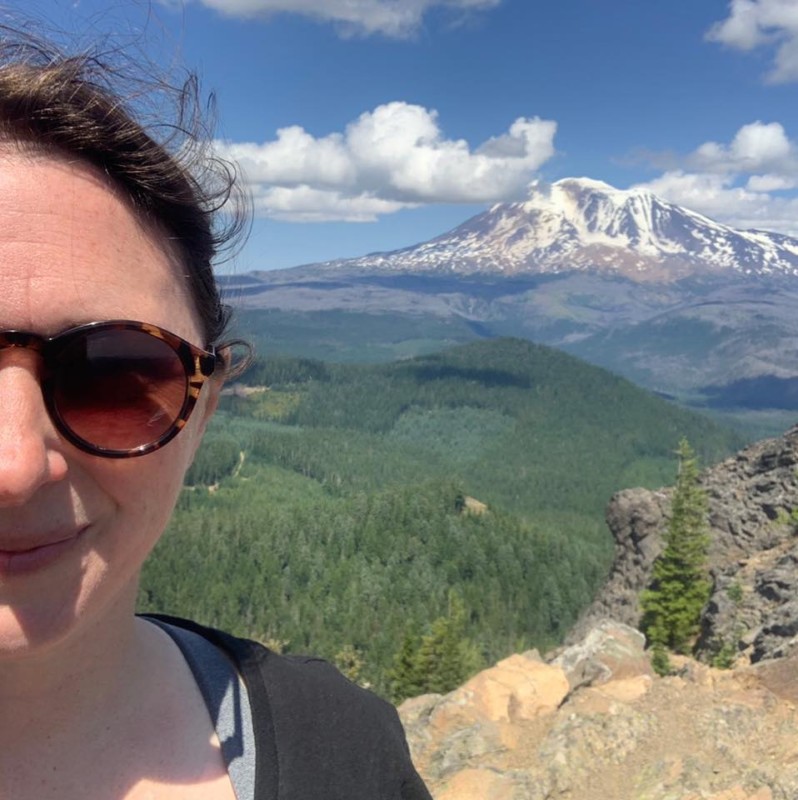
The author enjoys the view from atop Sleeping Beauty near Trout Lake, Wash.
Laura Linn works as a senior program coordinator at the Mt. Adams Institute in Trout Lake, WA. She completed this project as a part of her graduate work with Project Dragonfly at Miami University in Oxford, Ohio

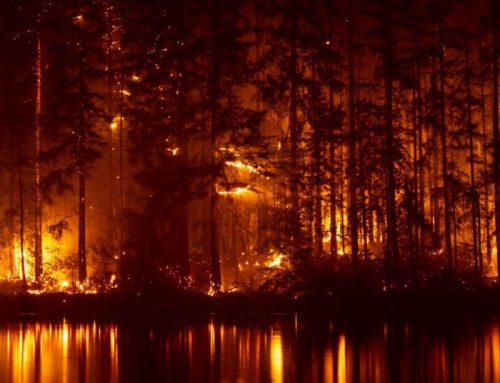
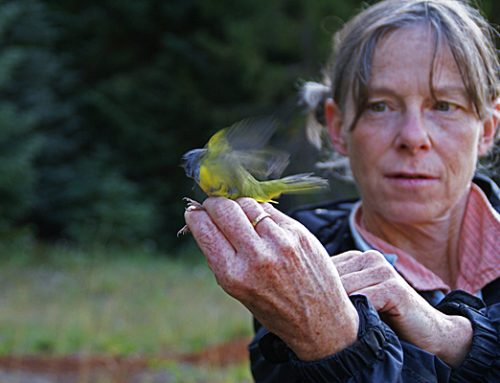
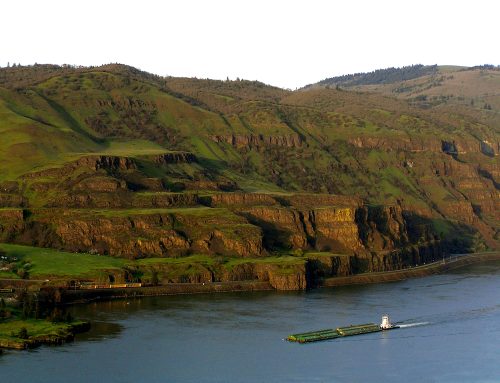
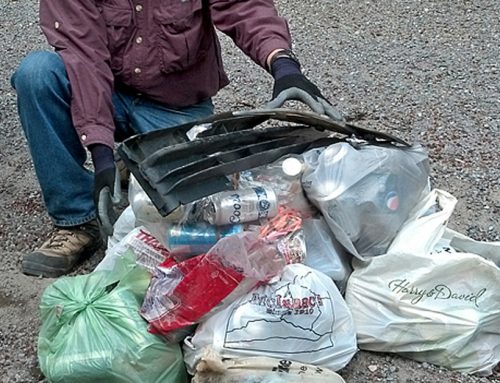

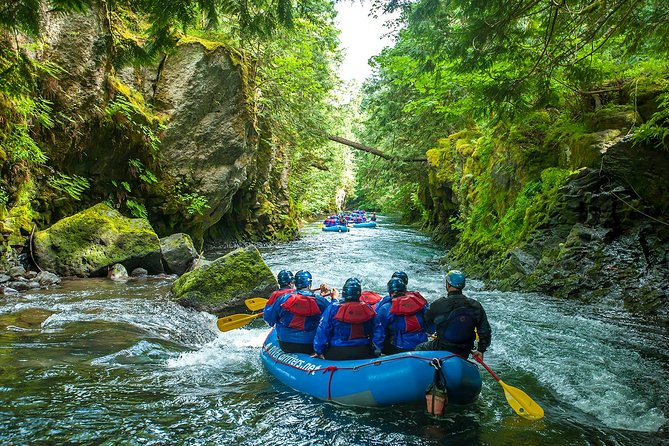
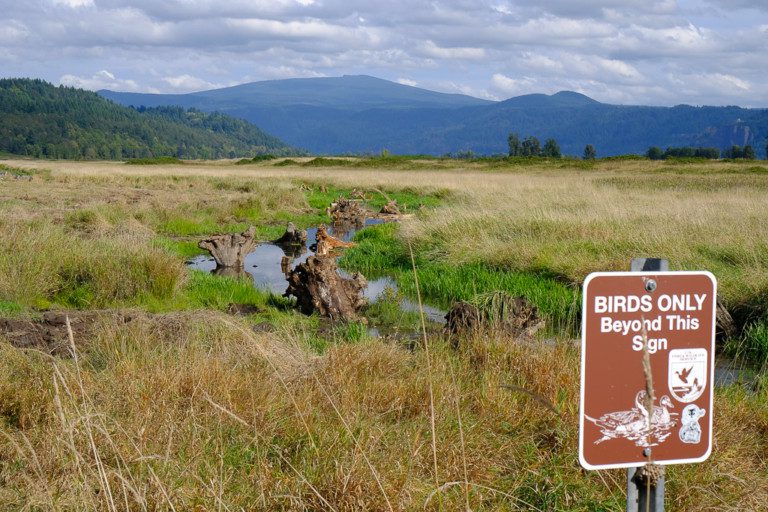
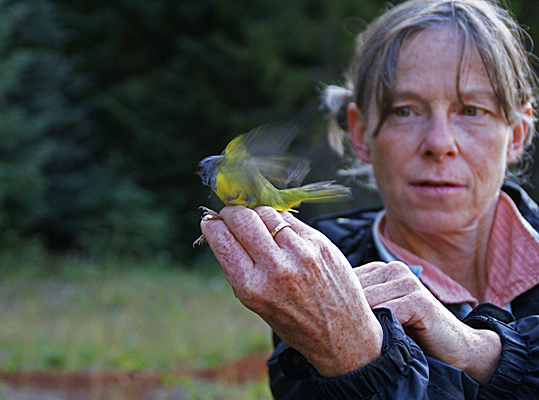


This is truly insightful read. It mirrored thoughts I personally experienced since moving to the Gorge.